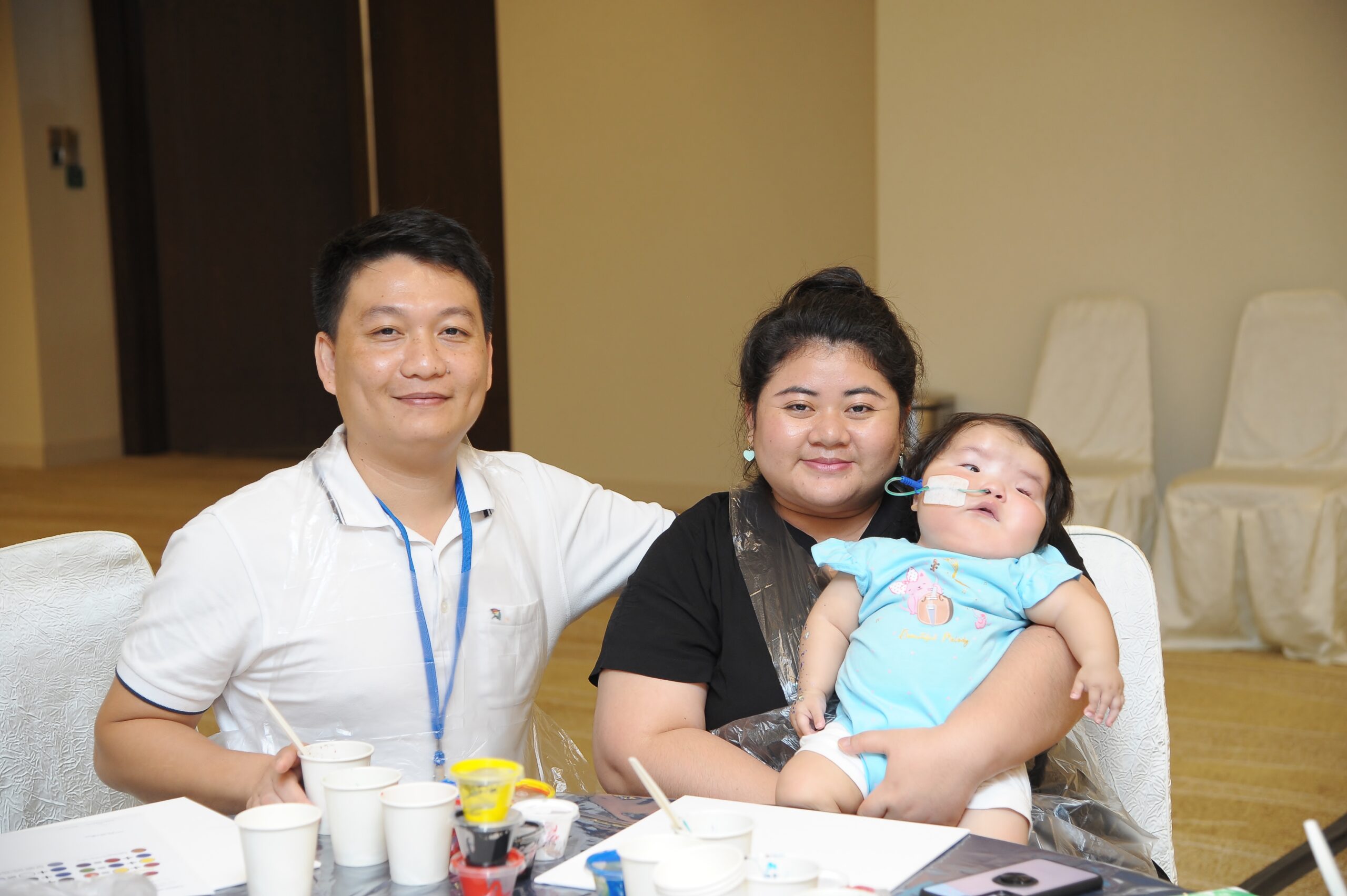
Close


Nilar recalls the night she received a devastating phone call from the hospital, when her daughter, HCA Star PALS patient Esther Tun, was just three months old. “They told me, ‘Esther has stopped breathing. We are doing CPR now.’,” she recalls solemnly. “We couldn’t leave our home to see her as we were down with COVID.”
Paing and Nilar were fraught with anxiety as they waited by the phone for updates on their daughter. Three long hours passed, before they got a call from the hospital with news that Esther’s condition had stabilised. “We kept asking ourselves, ‘What would we do if something had happened to her?’,” Nilar shares, as tears welled up in her eyes.
Diagnosed with a genetic condition with congenital abnormalities shortly after she was born premature, Esther, who is now 14 months old, relies on a BiPap for breathing support and a nasogastric tube for feeding. “When Esther was in NICU, her doctor suggested genetic testing,” Nilar explains. “We were so worried and scared when we got the news – is she going to be able to walk, to do things on her own?”
The early months were a chaotic blur of lengthy hospital stays and procedures, as the couple grappled with difficult emotions and mounting hospital bills. Paing and Nilar, who hail from Myanmar, have been working in Singapore for the past years and do not receive subsidies as they are foreigners. For Paing, who works in logistics and Nilar, who was a coffeeshop assistant before she left her job to care for Esther, the hefty bills were an additional source of stress.
“My husband would hide in the toilet to cry alone, and dry his tears before coming out,” Nilar shares. “He always put up a strong front in front of us, reassuring me that I don’t have to worry about the bills.”
This Mother’s Day, consider gifting a donation to HCA, to support mothers like Nilar. All of HCA’s services are funded by philanthropy and provided to patients like Esther, at no charge.
A Sliver of Rainbow
The couple was overjoyed yet anxious, when it came time to bring Esther home for the first time after many months in the hospital. “We were so happy to bring her back, but we were scared as we didn’t know how to take care of her,” Nilar recalls. “Whenever we tried to take off the BiPap to shower her, she would turn blue quickly from lack of oxygen.”
Esther was referred to the HCA Star PALS programme soon after, a source of support that brought much relief to the young family. The HCA Star PALS team visits Esther regularly to check on her condition and ensure that she is coping well at home. “Nurse Ya Nee taught me a lot on managing her symptoms, so that we don’t need to keep taking Esther to the hospital,” Nilar says. “The team sends me messages often to ask about Esther’s feeding and bowel movements.”
Kimberly (left) visits Esther and Nilar at their home.
HCA Senior Medical Social Worker Kimberly Chan, who visits Nilar regularly to ensure she is coping well, often looks out for medical consumables that are donated to HCA, for the family so as to defray some of their costs. HCA has also provided financial support for the family through the disbursement of funds, to tide them through their heavy expenses, on top of all of the services that are provided at no charge.
For the Tun family, the support they have received from the HCA Star PALS team goes beyond medical and psychosocial services. Last month, the family also went for the two-day, one-night Star PALS Family Day at Downtown East, a welcome respite and distraction from the confines of home and caregiving.
“Our hearts feel very warm,” Nilar says.
A Ray of Hope
Nilar’s day begins at 3.30am every morning, when Esther wakes, often by snuggling next to the couple, who sleep on a mat on the floor. Nilar is kept busy for the whole day, with physiotherapy thrice a day, tube feeding, administering medication and doing housework.
Despite struggling financially, Paing takes on extra hours at work, to pay for Esther’s physiotherapy sessions. Nilar religiously does physiotherapy with Esther for 3-4 hours a day, strengthening her grip and muscles. “After she started physiotherapy, she became stronger,” Nilar explains. “She can sit upright and function without the BiPap for much longer.”
Nilar gazes lovingly at Esther.
Despite the intensive caregiving, Nilar has no complaints. “We have been given a special child, and we will always love her,” she says. “I hope that she will be able to walk and do things on her own eventually, and that I can get a job to help my husband out financially.”